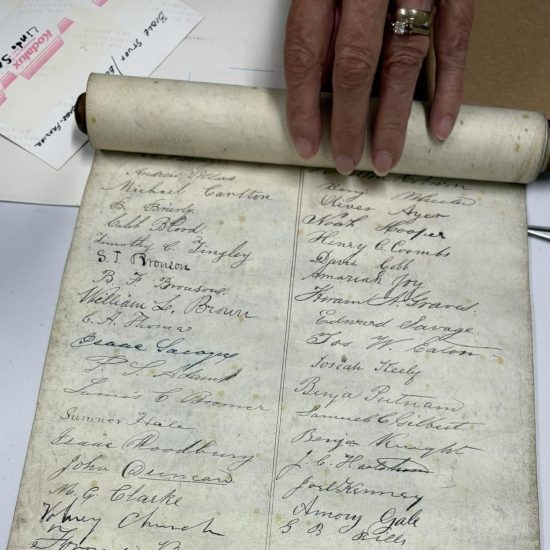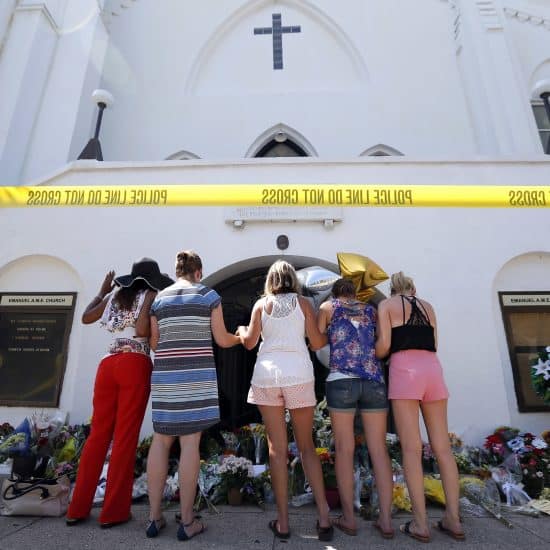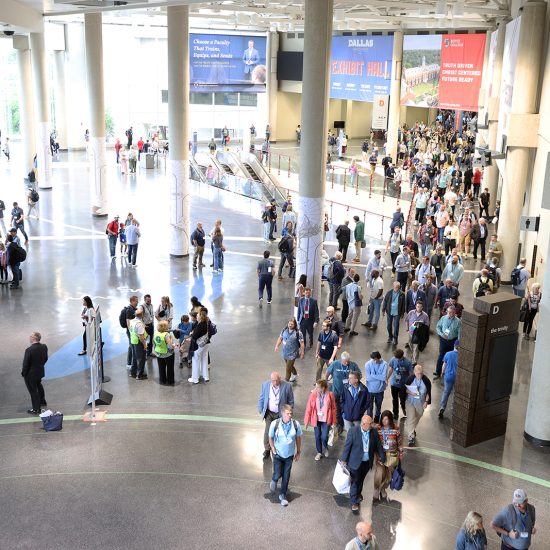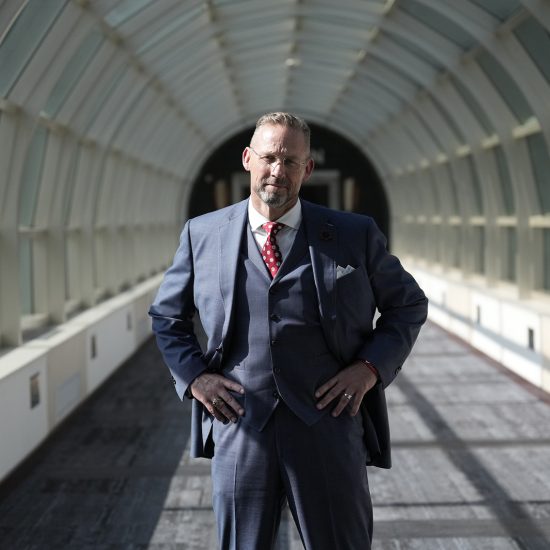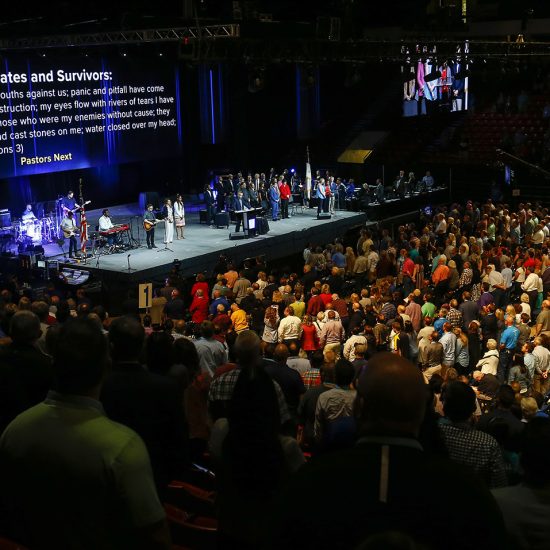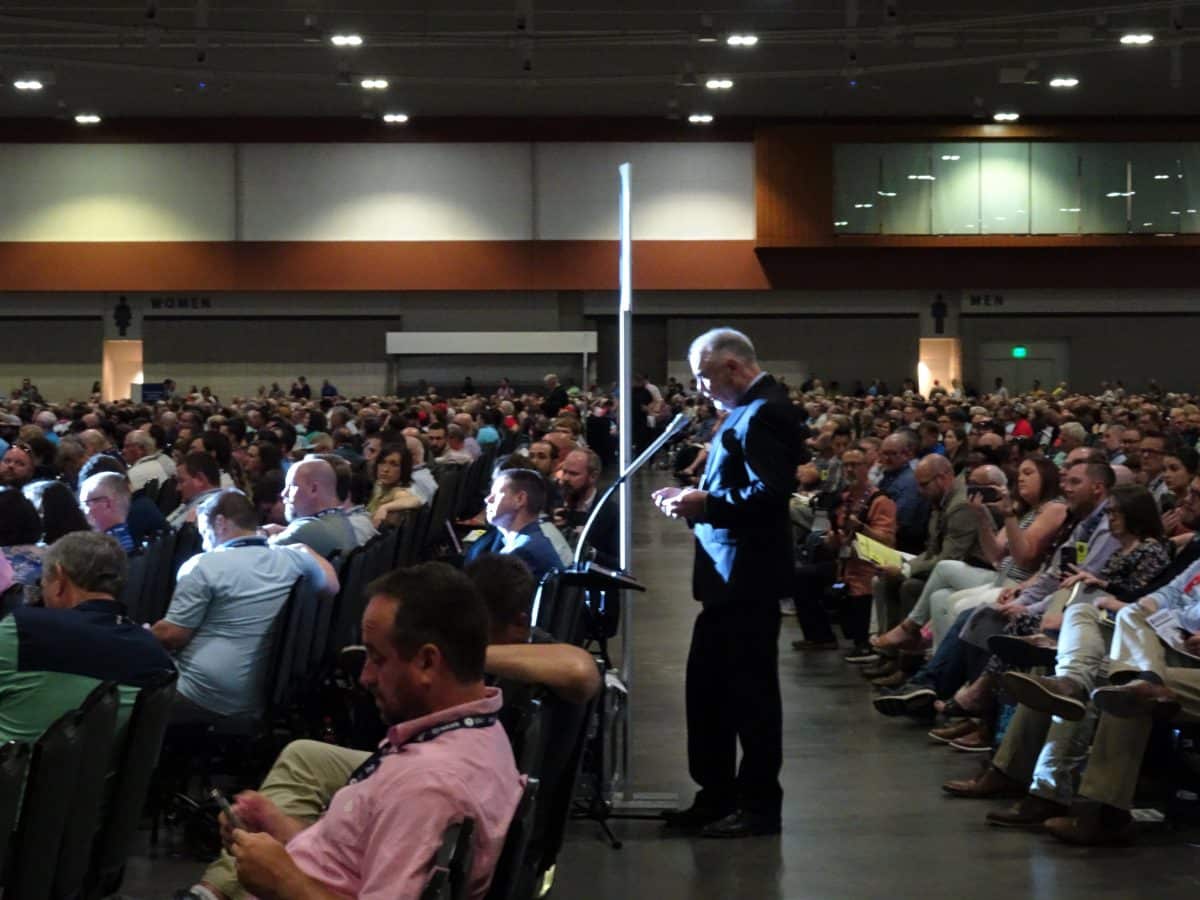
As the dust settles in the wake of the 2021 annual meeting of the Southern Baptist Convention, Southern Baptists are left with a mixed result on a whole host of issues. On one side, there is the new president, Ed Litton, and the pushback against the executive committee on the sex abuse issue. On the other, it’s the all-too-predictable resolutions against the LGBTQ community and abortion.
Finally, there was the issue of racial reconciliation which has dominated much of the debate within the convention since the last annual meeting two years ago. In the run-up to this year’s gathering, at least four resolutions addressing Critical Race Theory were proposed to the resolutions committee. The committee attempted to consolidate all four into one, a nearly impossible task considering the proposals ranged from a hearty endorsement of CRT to several outright condemnations of the social theory as incompatible with scripture and the SBC’s doctrinal statement, the Baptist Faith & Message 2000.
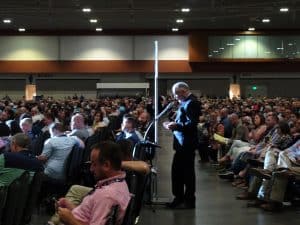
A messenger speaks against critical race theory during the Southern Baptist Convention annual meeting on June 16, 2021, in Nashville, Tennessee. (Brian Kaylor/Word&Way)
The result, Resolution 2, which was presented to and ultimately adopted by the convention, falls far short of what is needed to begin the SBC’s work of digging out from its racialized past and seeking racial reconciliation. While Resolution 2 stops short of explicitly denying the existence of systemic racial oppression, it focuses almost exclusively on racism in terms of individual sin with no mention of ongoing corporate guilt or systemic accountability.
“The SBC, as a group, have long resisted communitarian ethics and accompanying group responsibility,” said Todd Littleton, an Oklahoma pastor who submitted a pro-CRT resolution for consideration at this year’s meeting.
The problem with Southern Baptist’s resistance to corporate responsibility, Littleton argues, is that the biblical view of sin is both thoroughly personal and systemic.
“We don’t like that,” Littleton explained. “They’ll tell you you’re a liberal if you talk about structure. If you’re a conservative, it’s all on the individual as if individuals don’t participate in structures. Scripture points out that these things are both true at the same time.”
Biblically, the Hebrew prophets offer a consistent refutation of the kind of hyper-individualized thinking that forms the foundation for Resolution 2. The book of Amos begins with three chapters of judgments pronounced on nations for corporate sin. A few generations later, Ezekiel and Jeremiah would lay the destruction of the Jerusalem temple by the hands of the Babylonians squarely at the feet of Judah’s corporate sins of idol worship and exploitation of the poor. And the prophet Isaiah imagines a future day when nations – not just individuals – will be reconciled to God and worship alongside Israelites in the temple.
In the New Testament, Revelation 7:9-10, which Resolution 2 cites, envisions a future with people from every “tribe, tongue, and nation” standing in God’s presence. It’s not enough for John the Elder to see an uncountable number of individuals in the presence of God; that crowd must be made up of people from every race, language, and ethnicity.
How do we square this corporate vision of humanity’s multi-ethnic future with an SBC resolution that denies any system of thought that roots “the ultimate identity of human beings in ethnicity or in any other group dynamic?” The short answer is that we can’t.
Perhaps the ultimate identity of Revelation’s eschatological throng will be found in Christ, but ethnicity and group dynamic clearly still play an essential role. John wouldn’t have mentioned them if they didn’t. Reducing the complexities of identity down to an individualized gospel – a simple prayer and a trip through the baptismal waters – is as biblically unfaithful as it is socially irresponsible.
In their 2000 book, Divided By Faith, Michael O. Emmerson and Christian Smith argue against this kind of hyper-focus on the individual aspect of sins like racism. They propose that it effectively amounts to an inadvertent defense mechanism insulating White evangelicals from the continuing reality of structural inequity. As a remedy, they prescribe what longtime African American pastor Cecil Murray called an “at-risk gospel.” This at-risk gospel is more profound than just a hand-raise and a “simple prayer,” but challenges us to recognize that “calling sinners to repentance means also calling societies and structures to repentance.” Further, Emmerson and Smith call on White Christians, as the main benefactors of our racialized society, “to repent of their personal, historical, and social sins.”
“If historical and social sins are not confessed and overcome,” they warn, “they are passed on to future generations, perpetuating the racialized system and perpetuating sin.”
Last week, the SBC could have chosen to begin this work of confession and repentance by calling for the kind of “at-risk gospel” Emmerson and Smith commend. Instead, the SBC doubled down on a hyper-individualized view of sin, saying, “We reject any theory or worldview that sees the primary problem of humanity as anything other than sin against God and the ultimate solution as anything other than redemption found only in Christ.”
Four hundred years of intentional systemic oppression has brought America to this moment, and it will take intentional systemic action to bring racial equity and reconciliation to our nation. Resolution 2 is not enough to begin repairing the damage that has been done. In fact, by insinuating that 400 years of oppression will automatically melt away with by recognizing that “God has a wonderful plan for my life” and “repeating this simple prayer,” it further exasperates the problem.
God does have a wonderful plan, both for our lives and for racial reconciliation. And as a Christian I affirm that redemption is only possible in Christ. However, when it comes to racial reconciliation, this redemption has been buried underneath 400 years of slavery, segregation, disparity, red-lining, police brutality, and denial. It is going to take intentional systemic action to unearth it and make it a reality in our lives and our society.
Jason Koon is as an ordained Baptist minister who writes at the intersection of faith and political action. He lives in western North Carolina with his wife and two teenage daughters. His “Almost Ex-Evangelical Blog” can be found at jason-koon.com

